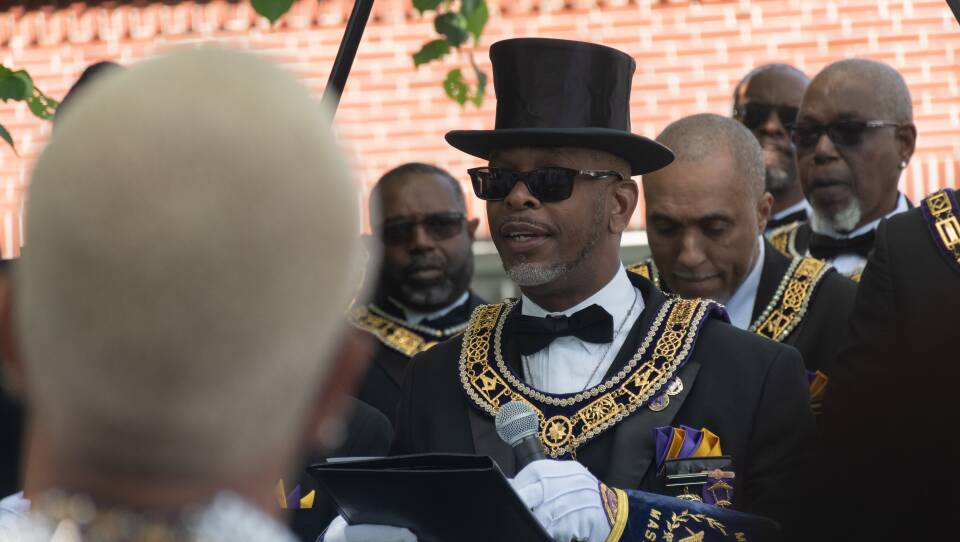This is a web edition of GBH Daily, a weekday newsletter bringing you local stories you can trust so you can stay informed without feeling overwhelmed.
☀️A mostly sunny day with possible showers tonight and highs in the 70s. Sunset is at 8:22 p.m.
Hope you’ve enjoyed a few hot and sunny weekdays. The weekend is here, and with it — for the 13th Saturday in a row — comes rain.
“The last stretch of wet Saturdays this long was in 1970,” Bryce Williams, a meteorologist with the National Weather Service in Norton, told GBH’s Robert Goulston. “This weekend has a decent chance of breaking that record.”
Our own Dave Epstein says we’re due for a break soon: “It’s just bad luck,” he said. “It will break at some point. Especially by mid-June when the jet stream typically slows down and the precipitation is triggered by temperature contrasts which means it will less likely create all day rain events.”
Along with the rain this weekend: Boston’s Pride for the People march and expected nationwide protests against the Trump administration are converging through the city on Saturday. We will bring you coverage on air, online and in this newsletter.
Four Things to Know
1. Tania Fernandes Anderson resigned from the Boston City Council; her last day on the job will be July 4. Fernandes Anderson has pled guilty to charges of wire fraud and theft from a federally funded program, and is scheduled for sentencing in federal court on July 29.
People who live in her district — which covers Roxbury, Dorchester, Fenway and a part of the South End — will be without a neighborhood representative on the city council until after this fall’s election. Fernandes Anderson’s constituent services staff will continue working out of the former office, although they will not have voting rights in City Council meetings. Residents can also contact one of the city’s four at-large council representatives.
2. A federal judge ordered the release on bail of Kseniia Petrova, the Harvard researcher born in Russia who has been detained in the U.S. since February on charges that she improperly brought frog embryos for her lab into the country. Her attorneys had said that deporting her back to Russia would put her in danger, because she has spoken out against the country’s war in Ukraine.
Petrova walked out of Boston’s federal courthouse on Thursday. Her case isongoing, and she cannot travel — U.S. authorities still have her passport, and she’s due back in court for a hearing next week. “A lot of people started contacting me and sending me letters, and it was a huge support without which I won’t be able to survive,” she said outside the courthouse. “I never really felt alone any minute when I was in custody, and it’s really helped me very much.”
3. Everett City Councilor Robert Van Campen is challenging Mayor Carlo DeMaria for his seat. DeMaria has come under scrutiny following a state inspector general investigation that found he improperly received $180,000 in longevity bonuses for winning re-election under a system he helped establish. DeMaria has denied any wrongdoing and has refused to return the money.
The two have faced off before, running against one another for the mayor’s seat in 2013. DeMaria won re-election that year with 62% of the vote. “My focus is on the people of Everett’s issues, what they care about and their priorities,” Van Campen said. “School overcrowding, making sure development is responsible and reasonable, making sure our neighborhoods are safe and clean and our children are getting the type of education they deserve.”
4. Members of the U.S. House of Representatives yesterday approved President Donald Trump’s request to take back $9.4 billion in previously approved funding, including international aid and $1.1 billion for the Corporation for Public Broadcasting, which funds National Public Radio and Public Broadcasting Service stations. The vote was 214-212. The total amount is a very small percentage of the U.S. budget — roughly 0.1% of the $6.873 trillion the federal government spent in 2024. (Total federal spending is up about 8%, or $356 billion, compared to last fiscal year, according to the U.S. Treasury.)
Next the bill heads to the Senate, where members must vote on it before July 18. If approved, the funding in question will be withdrawn on Oct. 1. However, if they reject the measure or fail to vote on it before the deadline, the money will remain in place.
In 1775, Boston’s Prince Hall broke Freemasonry’s racial barrier. His global movement marches on.
In Dorchester’s Grove Hall, just north of Franklin Park, there’s a building with modern decorative arches and a large square-and-compass logo: the Prince Hall Grand Lodge of Massachusetts.
It’s named after Prince Hall, an 18th Century man who was enslaved at birth, but later gained independence and became a leather craftsman. By 1775, he joined the secretive Freemasons and launched a lodge for himself and 14 other men of color.
“The process that they saw was that most of the people who were making political headway or gaining in finance, they were part of the Masonic Order,” said Louis Elisa, a master mason in the local Prince Hall Masons. “So Prince Hall thought, ‘Hey, this might be good for Black people to have that type of access and opportunity.’”
Today, 300,000 people, almost 5,000 lodges and 47 grand lodges around the world can trace their lineage to Hall’s lodge.
“He used Freemasonry as a tool or a vehicle to advance people of color and advance the community that he was living in at the time,” said Justin Petty, current grand master of the Prince Hall Grand Lodge of Massachusetts. “It’s very important for us to remember all those things that he worked hard for.”
GBH’s Trajan Warren and reporter Avery Bleichfeld of the Bay State Banner have collaborated on a fascinating historical tale, which you can read in full here.





